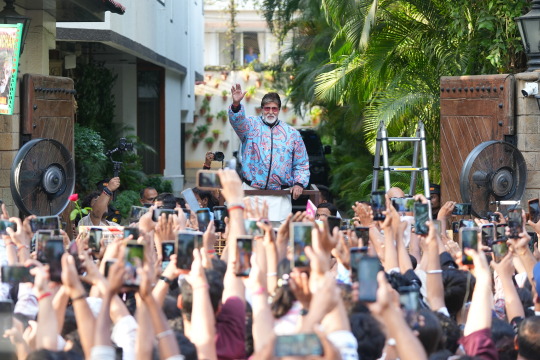#Revolution in Software Development
Explore tagged Tumblr posts
Text
Embracing the Revolution: Generative AI and Custom Software Development
Generative AI represents a paradigm shift in custom software development, offering unprecedented opportunities for innovation, efficiency, and creativity. By harnessing the power of AI algorithms, developers can accelerate the coding process, explore new design possibilities, and deliver highly customized solutions tailored to individual needs. As we embark on this journey of technological advancement, it's essential to embrace the transformative potential of generative AI while upholding ethical principles and ensuring inclusive and responsible development practices.
#Software Development#Custom Software Development#artificial intelligence#software engineering#AI#generative AI#ai algorithms#Revolution#technology#machine learning#programming
2 notes
·
View notes
Text
Bill Gates -The Tech Titan's Journey of Innovation and Philanthropy
Discover the extraordinary life and legacy of Bill Gates, the visionary behind Microsoft and a leading philanthropist. Explore his groundbreaking contributions to technology, his global impact on education and health through the Bill & Melinda Gates Foundation, and how his relentless pursuit of innovation continues to inspire positive change. Join us for an inspiring journey through the remarkable achievements of this tech titan and learn how he's shaping the world for a brighter future.
BillGates #Microsoft #TechTitan #Philanthropy #BillandMelindaGatesFoundation #Innovation #TechnologyRevolution #BusinessMagnate #Entrepreneur #MSDOS #WindowsOperatingSystem #GlobalHealth #PovertyEradication #EducationAccess #TechIndustry #Leadership #ComputerRevolution #SoftwareDevelopment #CharityWork #DigitalEmpowerment #Legacy #Inspiration #TechPhilanthropy #WorldChanger #DigitalTransformatio
youtube
#Bill Gates#Microsoft#Bard#ChatGPT#Tech Titan#Philanthropy#Bill and Melinda Gates Foundation#Innovation#Technology Revolution#Business Magnate#Entrepreneur#MSDOS#Windows Operating System#Global Health#Poverty Eradication#Education Access#Tech Industry#Leadership#Computer Revolution#Software Development#Charity Work#Digital Empowerment#Legacy#Inspiration#Tech Philanthropy#bing#youtube#success#Youtube
2 notes
·
View notes
Text
Discover how AI and automation are transforming logistics and supply chain management in 2025. Discover real-world success stories, cost-saving strategies, and cutting-edge trends like blockchain, IoT, and predictive analytics reshaping the industry.
#manufacturing software development services#manufacturing software development company#travel and hospitality software solutions#restaurant software development#digital revolution in manufacturing
0 notes
Text
The Future of Apps: Modern Development with .NET
🚀 Explore the .NET Revolution! Discover how .NET technologies like .NET Core, ASP.NET Core, and Xamarin are transforming modern app development. This powerful framework enables cross-platform solutions, cloud integration, and high-performance scalability, making it ideal for businesses seeking innovative, adaptable applications. Learn how Visual Studio, Azure DevOps, and microservices add value to app development. Dive in for a deep look at the future of .NET!
Read more 👉The .NET Revolution

#.net revolution#Mordern App Development#Future of Apps#Software Development#Mobile App Development Services#Web App Development Services#Hire software developers
0 notes
Text
#Green AI Revolution#Artificial Intelligence solutions#Software as a Service (saas)#Chatbot app development services
0 notes
Text
0 notes
Text
Revolutionizing Precious Metal E-Commerce: Agami Technologies’ Dynamic Spot Prices
#e commerce#ai revolution#dynamic spot pricing#web development#software development#startups#teamagami#preciousmetalshipping#bullion#javascript#nodejs#SaaS
0 notes
Text
"Introducing BusinessBox AI, a remarkable software that has quickly gained the support of over 500 marketers and business professionals in just one month. This review delves into its features, functionality, pricing, strengths, and limitations. We'll also discuss exclusive bonuses worth $40,000 that come with it. BusinessBox AI stands out with its exceptional lead generation capabilities, making it a noteworthy tool in the marketing field. We'll provide insights to help you decide if it's the right fit for your needs, and contact details for further inquiries."
1 note
·
View note
Text
Diagnosing Tomorrow : The AI Revolution in Medical Healthcare
The intersection of technology and healthcare has yielded remarkable advancements throughout history, and now, we stand at the precipice of another groundbreaking leap – the integration of artificial intelligence (AI) into medical diagnostics. The marriage of AI’s computational prowess with the intricacies of medical science is reshaping the landscape of healthcare, offering improved accuracy, efficiency, and accessibility in the diagnostic process. In this article, we’ll delve into how AI is ushering in a new era of medical diagnostics, transforming the way we approach disease detection, patient care, and overall well-being. Visit More - https://www.aaks.ca/blog/medical-healthcare/diagnosing-tomorrow-the-ai-revolution-in-medical-healthcare

#Diagnosing Tomorrow : The AI Revolution in Medical Healthcare#software development#web development#digital marketing#web design company in mississauga#multimedia / flash animation services#app development#digital marketing agency canada#web devlopment#graphic design#web design agency in toronto canada#web design
0 notes
Text

AI specialist Customized Support & Solutions Artificial intelligence not only has huge potential but is also necessary for helping to tackle difficult and important challenges. The manner in which ‘ARTIFICIAL INTELLIGENCE’ is developed and utilized will have enormous repercussions for the global society as a whole and humans in general. Pusula International can help you create a more intelligent design for your AI product by utilizing its state-of-the-art technologies. We can help develop your ideas regardless of where you are in your journey with AI, WE CAN HELP. Our company evaluates, analyzes and develops your AI ideas.
As more companies embark on corporate AI initiatives many of them discover that their data is causing them challenges. These issues can include issues with governance or a lack of interface with other systems. IT leaders across the globe usually experience one of two situations: they are either unable to handle the sheer volume of data at their disposal or they lack access to the essential data needed to generate useful insights. The use of our AI technology can help your business find solutions to challenging data management issues. Thanks to our quick approach to data and AI transformation, your company’s data estate will benefit from solutions that are agile, integrated, and flexible. Visit us https://pusulaint.com/contact-us/
#ai software#ai solutions#developer#artificial intelligence art#innovation#revolution#technology#phtotography#artists on tumblr#trending#trend
0 notes
Text

AI and IoT can revolutionize business processes. For example, IoT devices can collect and communicate valuable information about a company's operations. And with the help of NLP, these devices can communicate with humans and other devices. It can even prevent a device from malfunctioning by automatically sending service notifications when needed. By combining AI and IoT, businesses can develop new products and improve existing ones. Rolls Royce plans to implement AI technologies into airplane engine maintenance amenities. These devices will be able to detect trends in data and extract operational insights that can improve operations.
AI and IoT are rated among the top ten emerging technology trends for the Environment industry since they aid in environmental sustainability. The deployment of IoT devices in fleet management can help detect gas leaks and other environmental problems in real-time. By monitoring ambient air pollution, the data can inform preventative policies and strategies. Intelligent environmental management is a key way to improve the environment. This is a growing field with many benefits. Its application is endless.
#AI and IoT revolution#impact of AI and IoT on environment#iot and sustainability#software development company#custom software development#.net development#ifourtechnolab#software outsourcing#software development#angular development#asp.net development
0 notes
Text
DAY 6274
Jalsa, Mumbai Aopr 20, 2025 Sun 11:17 pm
🪔 ,
April 21 .. birthday greetings and happiness to Ef Mousumi Biswas .. and Ef Arijit Bhattacharya from Kolkata .. 🙏🏽❤️🚩.. the wishes from the Ef family continue with warmth .. and love 🌺
The AI debate became the topic of discussion on the dining table ad there were many potent points raised - bith positive and a little indifferent ..
The young acknowledged it with reason and able argument .. some of the mid elders disagreed mildly .. and the end was kind of neutral ..
Blessed be they of the next GEN .. their minds are sorted out well in advance .. and why not .. we shall not be around till time in advance , but they and their progeny shall .. as has been the norm through generations ...
The IPL is now the greatest attraction throughout the day .. particularly on the Sunday, for the two on the day .. and there is never a debate on that ..
🤣
.. and I am most appreciative to read the comments from the Ef on the topic of the day - AI .. appreciative because some of the reactions and texts are valid and interesting to know .. the aspect expressed in all has a legitimate argument and that is most healthy ..
I am happy that we could all react to the Blog contents in the manner they have done .. my gratitude .. such a joy to get different views , valid and meaningful ..
And it is not the end of the day or the debate .. some impressions of the Gen X and some from the just passed Gen .. and some that were never ever the Gen are interesting as well :
The Printing Press (15th Century)
Fear: Scribes, monks, and elites thought it would destroy the value of knowledge, lead to mass misinformation, and eliminate jobs. Reality: It democratized knowledge, spurred the Renaissance and Reformation, and created entirely new industries—publishing, journalism, and education.
⸻
Industrial Revolution (18th–19th Century)
Fear: Machines would replace all human labor. The Luddites famously destroyed machinery in protest. Reality: Some manual labor jobs were displaced, but the economy exploded with new roles in manufacturing, logistics, engineering, and management. Overall employment and productivity soared.
⸻
Automobiles (Early 20th Century)
Fear: People feared job losses for carriage makers, stable hands, and horseshoe smiths. Cities worried about traffic, accidents, and social decay. Reality: The car industry became one of the largest employers in the world. It reshaped economies, enabled suburbia, and created new sectors like travel, road infrastructure, and auto repair.
⸻
Personal Computers (1980s)
Fear: Office workers would be replaced by machines; people worried about becoming obsolete. Reality: Computers made work faster and created entire industries: IT, software development, cybersecurity, and tech support. It transformed how we live and work.
⸻
The Internet (1990s)
Fear: It would destroy jobs in retail, publishing, and communication. Some thought it would unravel social order. Reality: E-commerce, digital marketing, remote work, and the creator economy now thrive. It connected the world and opened new opportunities.
⸻
ATMs (1970s–80s)
Fear: Bank tellers would lose their jobs en masse. Reality: ATMs handled routine tasks, but banks actually hired more tellers for customer service roles as they opened more branches thanks to reduced transaction costs.
⸻
Robotics & Automation (Factory work, 20th century–today)
Fear: Mass unemployment in factories. Reality: While some jobs shifted or ended, others evolved—robot maintenance, programming, design. Productivity gains created new jobs elsewhere.
The fear is not for losing jobs. It is the compromise of intellectual property and use without compensation. This case is slightly different.
I think AI will only make humans smarter. If we use it to our advantage.
That’s been happening for the last 10 years anyway
Not something new
You can’t control that in this day and age
YouTube & User-Generated Content (mid-2000s onward)
Initial Fear: When YouTube exploded, many in the entertainment industry panicked. The fear was that copyrighted material—music, TV clips, movies—would be shared freely without compensation. Creators and rights holders worried their content would be pirated, devalued, and that they’d lose control over distribution.
What Actually Happened: YouTube evolved to protect IP and monetize it through systems like Content ID, which allows rights holders to:
Automatically detect when their content is used
Choose to block, track, or monetize that usage
Earn revenue from ads run on videos using their IP (even when others post it)
Instead of wiping out creators or studios, it became a massive revenue stream—especially for musicians, media companies, and creators. Entire business models emerged around fair use, remixes, and reactions—with compensation built in.
Key Shift: The system went from “piracy risk” to “profit partner,” by embracing tech that recognized and enforced IP rights at scale.
This lead to higher profits and more money for owners and content btw
You just have to restructure the compensation laws and rewrite contracts
It’s only going to benefit artists in the long run
Yes
They can IP it
That is the hope
It’s the spread of your content and material without you putting a penny towards it
Cannot blindly sign off everything in contracts anymore. Has to be a lot more specific.
Yes that’s for sure
“Automation hasn’t erased jobs—it’s changed where human effort goes.”
Another good one is “hard work beats talent when talent stops working hard”
Which has absolutely nothing to with AI right now but 🤣
These ladies and Gentlemen of the Ef jury are various conversational opinions on AI .. I am merely pasting them for a view and an opinion ..
And among all the brouhaha about AI .. we simply forgot the Sunday well wishers .. and so ..














my love and the length be of immense .. pardon

Amitabh Bachchan
104 notes
·
View notes
Text
Discover how AI transforms the industry, from predictive maintenance to supply chain optimization. Stay ahead of the curve and unlock new growth opportunities.
#manufacturing software development services#manufacturing software development company#AI in manufacturing#AI revolution#performix#performix AI
0 notes
Text
One way to spot patterns is to show AI models millions of labelled examples. This method requires humans to painstakingly label all this data so they can be analysed by computers. Without them, the algorithms that underpin self-driving cars or facial recognition remain blind. They cannot learn patterns.
The algorithms built in this way now augment or stand in for human judgement in areas as varied as medicine, criminal justice, social welfare and mortgage and loan decisions. Generative AI, the latest iteration of AI software, can create words, code and images. This has transformed them into creative assistants, helping teachers, financial advisers, lawyers, artists and programmers to co-create original works.
To build AI, Silicon Valley’s most illustrious companies are fighting over the limited talent of computer scientists in their backyard, paying hundreds of thousands of dollars to a newly minted Ph.D. But to train and deploy them using real-world data, these same companies have turned to the likes of Sama, and their veritable armies of low-wage workers with basic digital literacy, but no stable employment.
Sama isn’t the only service of its kind globally. Start-ups such as Scale AI, Appen, Hive Micro, iMerit and Mighty AI (now owned by Uber), and more traditional IT companies such as Accenture and Wipro are all part of this growing industry estimated to be worth $17bn by 2030.
Because of the sheer volume of data that AI companies need to be labelled, most start-ups outsource their services to lower-income countries where hundreds of workers like Ian and Benja are paid to sift and interpret data that trains AI systems.
Displaced Syrian doctors train medical software that helps diagnose prostate cancer in Britain. Out-of-work college graduates in recession-hit Venezuela categorize fashion products for e-commerce sites. Impoverished women in Kolkata’s Metiabruz, a poor Muslim neighbourhood, have labelled voice clips for Amazon’s Echo speaker. Their work couches a badly kept secret about so-called artificial intelligence systems – that the technology does not ‘learn’ independently, and it needs humans, millions of them, to power it. Data workers are the invaluable human links in the global AI supply chain.
This workforce is largely fragmented, and made up of the most precarious workers in society: disadvantaged youth, women with dependents, minorities, migrants and refugees. The stated goal of AI companies and the outsourcers they work with is to include these communities in the digital revolution, giving them stable and ethical employment despite their precarity. Yet, as I came to discover, data workers are as precarious as factory workers, their labour is largely ghost work and they remain an undervalued bedrock of the AI industry.
As this community emerges from the shadows, journalists and academics are beginning to understand how these globally dispersed workers impact our daily lives: the wildly popular content generated by AI chatbots like ChatGPT, the content we scroll through on TikTok, Instagram and YouTube, the items we browse when shopping online, the vehicles we drive, even the food we eat, it’s all sorted, labelled and categorized with the help of data workers.
Milagros Miceli, an Argentinian researcher based in Berlin, studies the ethnography of data work in the developing world. When she started out, she couldn’t find anything about the lived experience of AI labourers, nothing about who these people actually were and what their work was like. ‘As a sociologist, I felt it was a big gap,’ she says. ‘There are few who are putting a face to those people: who are they and how do they do their jobs, what do their work practices involve? And what are the labour conditions that they are subject to?’
Miceli was right – it was hard to find a company that would allow me access to its data labourers with minimal interference. Secrecy is often written into their contracts in the form of non-disclosure agreements that forbid direct contact with clients and public disclosure of clients’ names. This is usually imposed by clients rather than the outsourcing companies. For instance, Facebook-owner Meta, who is a client of Sama, asks workers to sign a non-disclosure agreement. Often, workers may not even know who their client is, what type of algorithmic system they are working on, or what their counterparts in other parts of the world are paid for the same job.
The arrangements of a company like Sama – low wages, secrecy, extraction of labour from vulnerable communities – is veered towards inequality. After all, this is ultimately affordable labour. Providing employment to minorities and slum youth may be empowering and uplifting to a point, but these workers are also comparatively inexpensive, with almost no relative bargaining power, leverage or resources to rebel.
Even the objective of data-labelling work felt extractive: it trains AI systems, which will eventually replace the very humans doing the training. But of the dozens of workers I spoke to over the course of two years, not one was aware of the implications of training their replacements, that they were being paid to hasten their own obsolescence.
— Madhumita Murgia, Code Dependent: Living in the Shadow of AI
70 notes
·
View notes
Text
The digital transformation in healthcare has led to the development of numerous healthcare apps, revolutionizing how patients and healthcare providers interact. However, with this progress comes the growing complexity of these applications.
Challenges of monolithic architecture for healthcare apps
Interoperability and Data Exchange Issues
Scalability and Flexibility Demands
Complexity
Speed of innovation
Cost of development and maintenance
#technology#digital transformation#it consulting#tech#it services#software development#technology trends#business#product development service#microservices#healthcare application development company#healthcare architecture#healthcare revolution
0 notes
